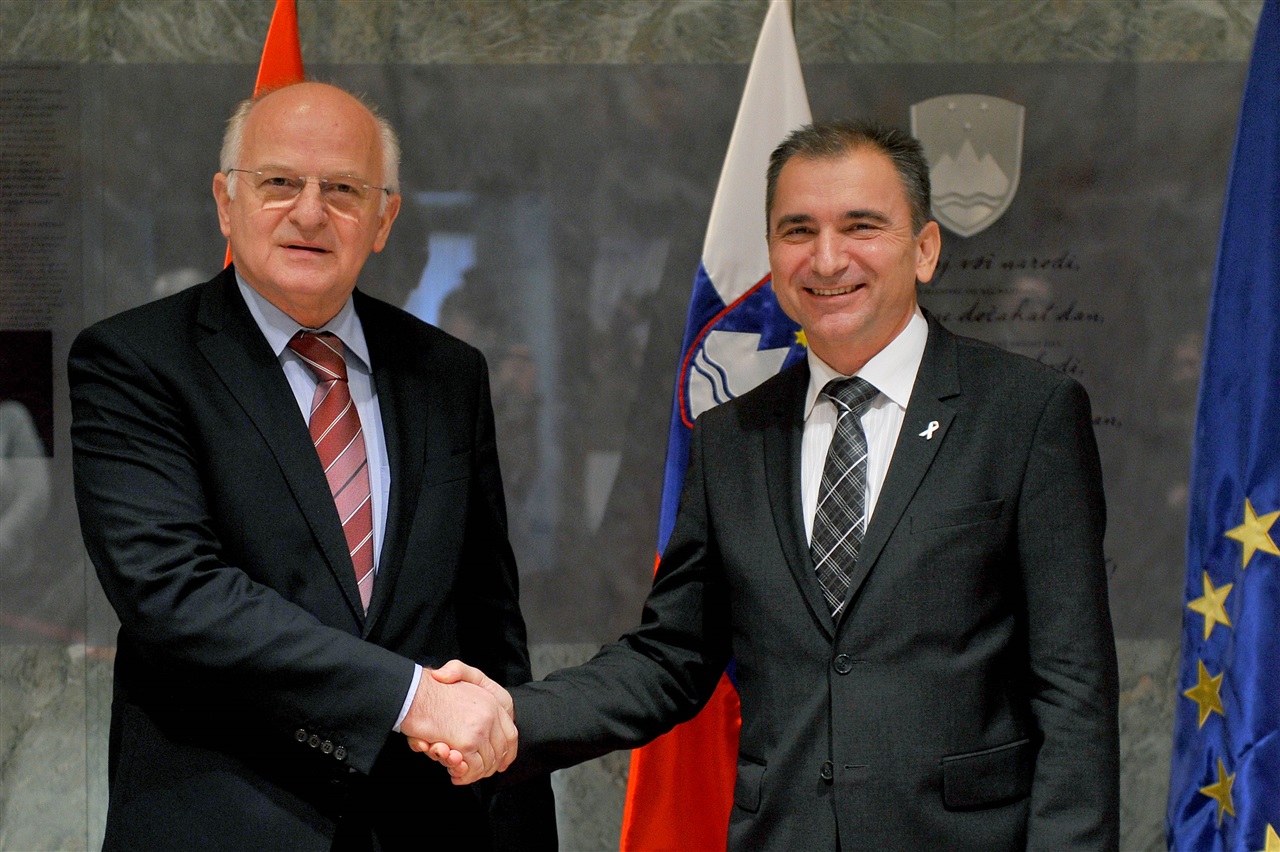
Ljubljana - Croatia's and Slovenia's parliament speakers Josip Leko and Janko Veber said in Ljubljana on Thursday that relations between the two countries were stable and their cooperation, particularly economic, was at a high level, underscoring that the parliaments were urging the governments of both countries to resolve remaining outstanding issues, including the question of foreign savings accounts in the now defunct Ljubljanska Banka (LB), where there seems to be a difference of opinion.
-Political cooperation between Croatia and Slovenia is stable and positive with a visible synergy present between these two friendly countries, Leko said after the meeting with his host at the start of his two-day official visit to Slovenia at the helm of a parliamentary delegation.
Speaking at a joint press conference, Veber underscored the continuation of cooperation and exchange of experience in strengthening bilateral relations, parliamentary cooperation and other forms of cooperation, particularly within the European Union where Croatia is interested in Slovenia's experience in European institutions and the European Parliament, and that cooperation also existed between the two countries in the Mediterranean which is of interest to both countries and the EU.
The talks also focused on the minorities, Veber said, particularly with reference to Slovenia's efforts to advance work with minority communities through a national cultural programme. As far as outstanding issues and regional cooperation are concerned, Veber said that he agreed with his Croatian counterpart that they should prompt both governments to work on the Agreement of Succession of the Former Socialist Federal Republic of Yugoslavia and to resolve the LB savings issue.
Asked by reporters why Croatia had not ratified the Mokrice memorandum on LB and what the problem was with the memorandum, Leko said that it was obvious that the two sides interpreted the memorandum differently. -We hope that a solution will be found as soon as possible and we urge both governments to do so, Leko said.
Leko said that all minorities in Croatia were protected by the constitution and had the right to representation in parliament. With regard to Croatian cultural societies in Slovenia which are seeking minority status, Leko explained that Croatia was interested in preserving their cultural and national identity but that Croatia did not wish to impose its model relating to minorities on Slovenia.
Croatia's parliamentary delegation met with representatives of the Slovenian parliamentary foreign affairs and European affairs committees and the leaders of parliamentary groups.
Later this afternoon, Leko is expected to meet with President Borut Pahor and Prime Minister Alenka Bratusek, and later on with Croats living in Slovenia.